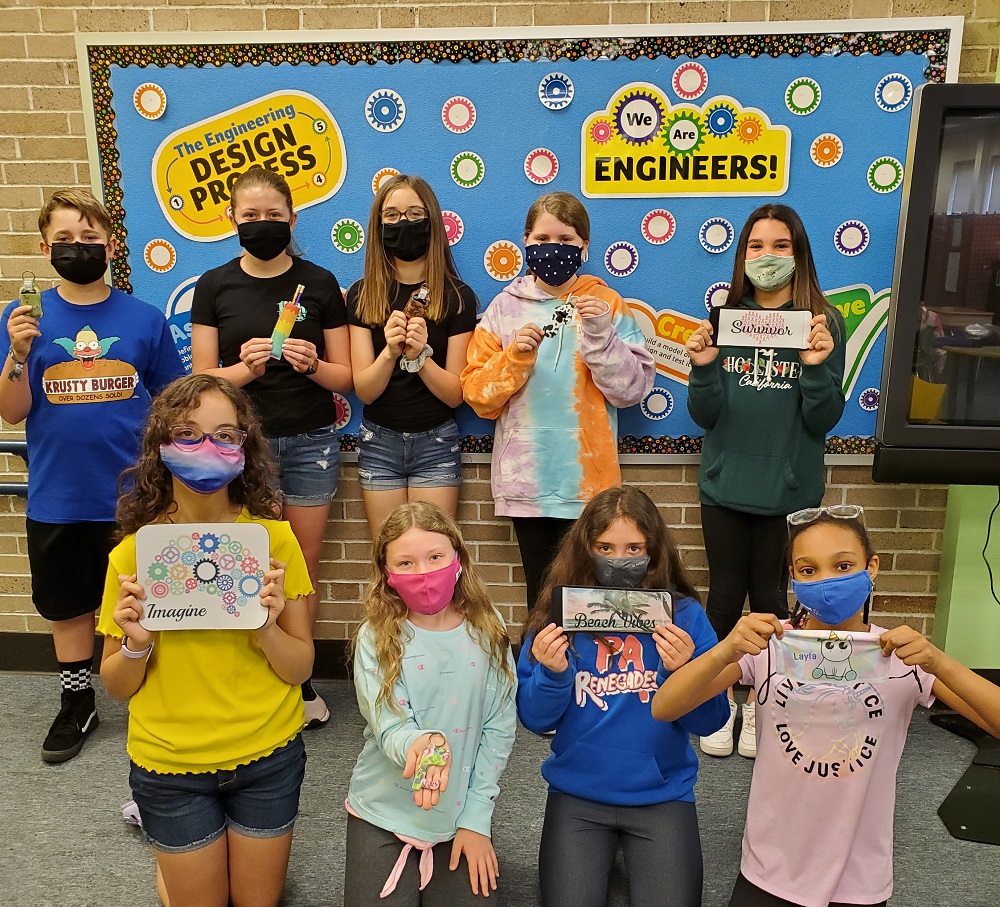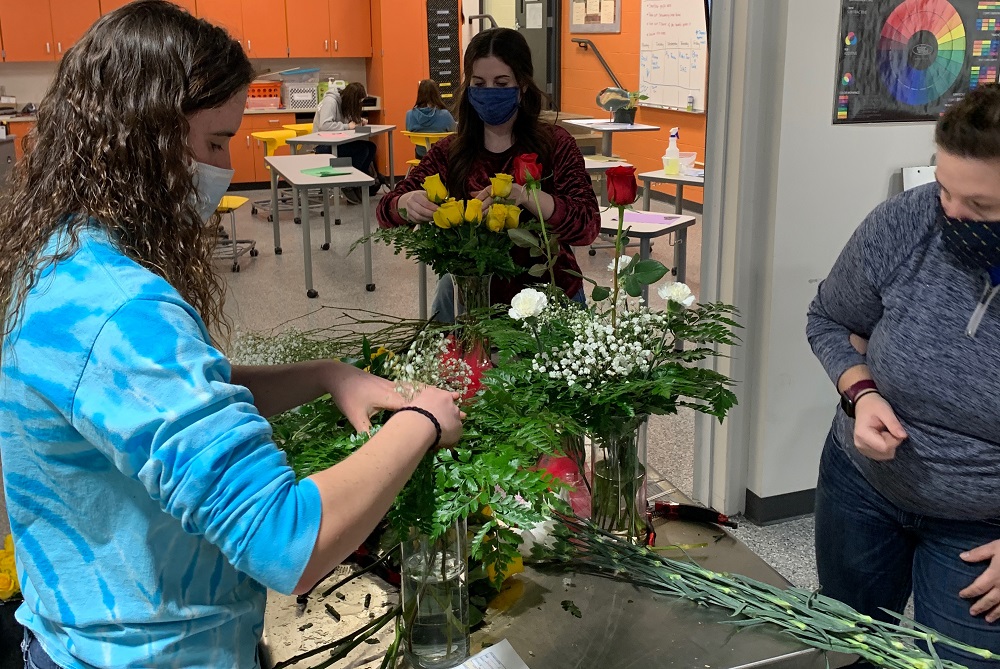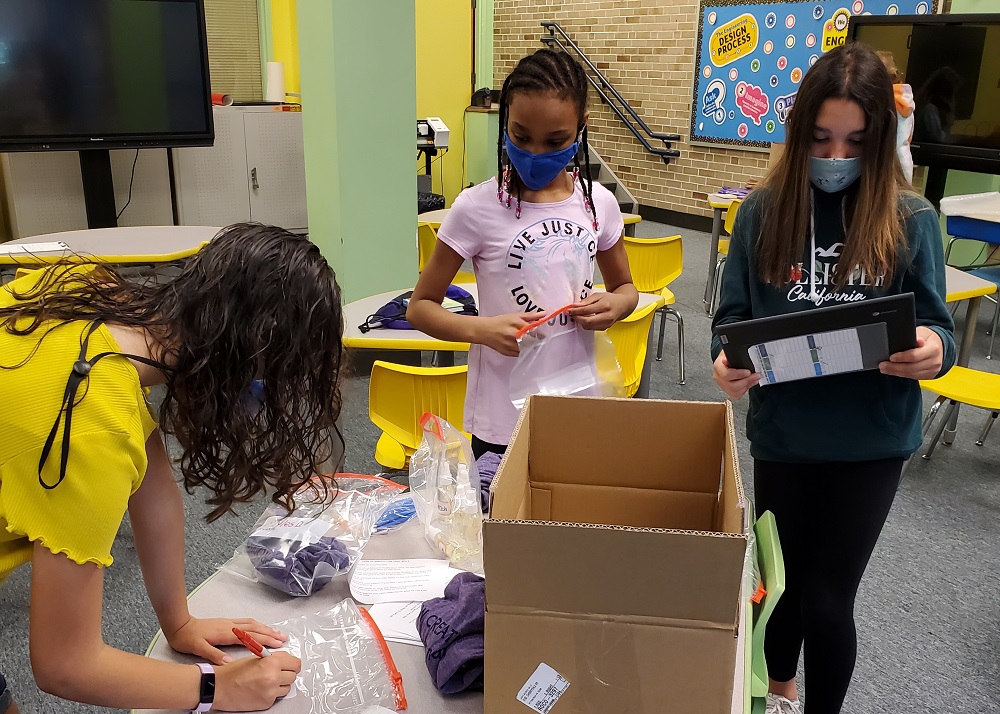
EdCorps Real World Scholars develops kid entrepreneurs to lead tomorrow’s business world
Photo: Kids at Whitehall Elementary show off some of the products made and sold by their BW Creations.
Tim Barnes admits that there was a bit of resistance when he broached the idea of starting a small company in his business and entrepreneurship technology class at West Greene High School. The kids had questions about the online platform created by EdCorps Real World Scholars to run an e-commerce business in schools.
Would the project, christened Hargus Creek Designs, add to their workload? Would it be of any practical use? What products would they make? And would anyone want them?
The answers:
- Yes, it was more work, but worth it.
- Yes, the kids learned the basics of running a business, from design through distribution.
- The products they created ranged from tumblers to personalized wooden truck signs. And yes, the demand brought in almost $5,300.
“Once they realized what it is and what’s become established, there’s just endless support for it, from students, from parents, from the community, from administrators,” Barnes says.

EdCorps, a non-profit organization founded in 2015, helps students in 40 states create and run their own businesses. The Greater Pittsburgh EdCorps, co-sponsored by the Grable Foundation, hosts 64 businesses run by more than 4,800 student entrepreneurs.
The organization wanted to give students an opportunity to start businesses that go beyond the sale of hoagies or baked goods at athletic events, says Christen Dunn, EdCorps special projects manager.
“We wanted students to experience the start-up and experience of running a real business,” Dunn says.
Many school districts are justifiably wary of supporting student enterprises because of the bureaucracy and red tape involved. EdCorps provides a platform that includes assistance with licensing, sales tax, credit card processing and other processes that require time and experience that teachers may not have.
“I had the idea I wanted to do something similar before I found EdCorps,” Barnes says. “I was searching for ways to do it. EdCorps has made it tremendously easier.”
Within a classroom or a club, the teacher can help students build a business together, Dunn says. “It’s not about an individual endeavor but a real small business that students gain much more from, not only entrepreneurially, but also through collaboration and communication. They are going to need many of these skills when they get out in the workforce.”

At Whitehall Elementary in the Baldwin-Whitehall School District, Kristy Frohliger’s fifth graders wanted to design products that were not only appealing but useful. They worked remotely for most of the past year as BW Creations, making and selling a range of products including mobile phone stands for the South Baldwin Volunteer Fire Company and an assortment of mugs and koozies.
But freeze pop holders?
“I really didn’t know what they were,” Frohliger says. “You really put these on freeze pops? … But we also did them for school, put two pencils in them and called them pencil pouches.”
There are about 20 fifth graders, and a few sixth-grade mentors from the prior school year, who form the core group working on BW Creations. To be part of the program, Frohliger asked kids to fill out an application because, she says, “that’s what you do if you want to be part of a business.”
The kids’ work has paid off handsomely: This year’s profit reached about $3,200. That amount is amazing, Frohliger says, because there were no in-person sales or events.
“It’s just the kids talking about it,” she says. “We started doing TikTok because the kids wanted to do that, and we’re getting orders from that. It’s just spreading the word throughout the community.”
EdCorps projects are similar to other small businesses. Dunn points out that nearly 50 percent of the American workforce is employed by a small business. Of that, half of all small businesses are run by one person.
“But you still need many skills to operate with others,” Dunn says. EdCorps completely prepares them for that.
The students working at EdCorps businesses don’t make a dime for their work. All of the profit is either rolled back into the businesses, pays for school projects or is donated to charities.
The skills they learn from invoicing, marketing and design will be useful for the rest of their lives. But perhaps the most important lessons they learn can be applied to any situation the kids will face.
“We vote on any of the decisions we have to make,” Frohliger says. “It’s definitely a collaborative effort and learning how to work with each other.”
At West Greene, kids also have learned the importance of cooperation to running a viable business.
But perhaps the biggest tribute to the program’s effectiveness came during sign-ups for next year’s class.
There was so much demand, Barnes had to create a waiting list.